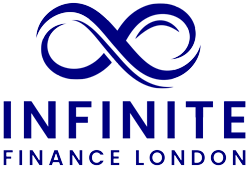No Deposit Mortgages (100% Mortgages)
Want to buy a home without a deposit? Discover the benefits and options for no-deposit mortgages and how you can secure a 100% mortgage today.
In this guide, we'll break down everything you need to know about no-deposit mortgages, including how to qualify, the advantages, and the potential risks. Whether you're a first-time buyer in London or someone looking to climb the property ladder, we'll help you understand how a 100% mortgage could open the door to homeownership without the burden of a hefty deposit.
If you're unsure about your no-deposit mortgage options, give our mortgage broker in London a call at 020 3813 7800 to check if you qualify for a 100% mortgage with zero deposit.
Table of Contents
- What Is a No-Deposit Mortgage?
- What Are the Different Types of No Deposit Mortgages in the UK?
- How Do You Qualify for a No-Deposit Mortgage?
- How Does a No-Deposit Mortgage Work?
- What Are the Advantages of a No-Deposit Mortgage?
- What Are the Disadvantages of No-Deposit Mortgages?
- Is a No-Deposit Mortgage More Expensive?
- Contact our Mortgage Broker in London
What Is a No-Deposit Mortgage?
A no-deposit mortgage, also known as a 100% mortgage or 0% deposit mortgage, allows you to buy a home without putting down a deposit. This means you borrow the full purchase price of the property from the mortgage lender. These types of mortgages are usually aimed at first-time buyers who are struggling to save a deposit, especially in high-cost areas like London.
What Are the Different Types of No Deposit Mortgages in the UK?
If you're looking to get onto the property ladder but don't have a deposit saved, a no-deposit mortgage (also known as a 100% mortgage) could be a potential solution. These mortgages allow you to borrow the full value of a property, meaning you don't need to worry about coming up with a large deposit. However, there are several types of no-deposit mortgages, each with its own features and requirements. Here's a breakdown of the most common options:
1. Guarantor Mortgages
A guarantor mortgage is one of the most popular types of no-deposit mortgages. In this case, a family member or close friend agrees to act as a guarantor for the loan. This means they promise to make the mortgage payments if you're unable to.
- How it works: The guarantor typically uses their savings or property as security for the mortgage. If you fall behind on payments, the lender can claim the guarantor's assets.
- Pros: It allows you to borrow the full amount without a deposit, as long as you have someone willing to act as a guarantor.
- Cons: If you miss payments, it could impact your relationship with the guarantor and put their property or savings at risk.
2. Family Deposit Mortgages
A family deposit mortgage is another variation of the no-deposit mortgage. Instead of a guarantor, a family member deposits a lump sum of money into a special account as security for the loan. This amount typically ranges from 10% to 20% of the property's value.
- How it works: The money is locked away in an account for a set period, usually five years. If you make all your payments on time, the family member will get their money back, plus any interest earned. However, if you miss payments, the money in the account may be used to cover your mortgage.
- Pros: It doesn't require the family member to make payments themselves, and they get their money back at the end of the term if all goes well.
- Cons: If you fall behind on payments, the family member could lose their savings.
3. Track Record Mortgages
A track record mortgage is a newer type of no-deposit mortgage that may be available to tenants who have consistently paid their rent on time. Instead of requiring a deposit or a guarantor, this mortgage type relies on your history of paying rent regularly.
- How it works: The lender looks at your previous rental payments to assess your ability to manage mortgage payments. This is ideal for people who have been reliable tenants but don't have the savings for a deposit.
- Pros: If you've built a solid track record of paying rent, you could qualify for a 100% mortgage without needing a guarantor or deposit.
- Cons: Not all lenders offer this option, and the number of available products may be limited.
4. Joint Mortgages with a Family Member
In some cases, you and a family member may decide to apply for a joint mortgage to help increase your chances of getting a no-deposit mortgage. This is especially helpful if you can't afford a deposit but want to benefit from the combined incomes.
- How it works: The mortgage is shared between you and the family member, and the lender will consider both of your incomes when assessing affordability. This can increase your borrowing potential.
- Pros: Pooling resources can increase your chances of qualifying, especially if you have a family member who is in a stronger financial position.
- Cons: It may put a strain on your relationship if financial problems arise or if you have differing financial goals.
The right type of no-deposit mortgage for you will depend on your financial situation, whether you have a guarantor or family support. Whether you go for a guarantor mortgage, family deposit mortgage, or even a track record mortgage, it's important to carefully consider the risks and benefits before deciding.
If you're unsure which 0% deposit mortgage is best for you, consider speaking with our expert mortgage broker. We can guide you through the options and help you find the right deal to suit your needs.
How Do You Qualify for a No-Deposit Mortgage?
To qualify for a no-deposit mortgage, you need to meet the basic criteria of being a first-time buyer, having a reliable income, and maintaining a good credit score. You will also likely need a guarantor or family support, as these mortgages are considered riskier for lenders. If you meet all these requirements, a no-deposit mortgage could be a great way to get your foot on the property ladder without having to save for a deposit.
To qualify for a no-deposit mortgage, you typically need to:
- Be a first-time buyer or have a reliable income to support the repayments
- Have a guarantor (if you don't have a deposit)
- Meet the lender's affordability criteria
- Have a decent credit score (although some lenders may consider your rental history as proof of reliability)
If you're unsure about your eligibility or need advice on how to get started, speaking to our expert mortgage broker can help you understand your options and improve your chances of approval.
How Does a No-Deposit Mortgage Work?
If you're approved, your lender will cover the full cost of your new home. You'll make monthly repayments that include both the loan amount and interest. Most deals start with a fixed interest rate period, so your monthly payments stay the same for a few years before switching to a variable rate, which could go up or down.
Just remember you'll still need money for legal fees, surveys, and moving costs, even though you don't need a deposit.
What Are the Advantages of a No-Deposit Mortgage?
If you're a first-time buyer or currently renting and struggling to save up a large lump sum, a no-deposit mortgage (also known as a 100% mortgage or 0% deposit mortgage) can be a real game-changer.
There are several advantages to opting for a no-deposit mortgage, especially for those looking to buy a home quickly.
1. No Deposit Required
The biggest advantage of a no-deposit mortgage is that you don't need to save for a deposit. If you're struggling to save or simply can't afford to put down a significant amount of money, this is a great option.
2. Get on the Property Ladder Faster
With no deposit, you may be able to get onto the property ladder quicker than you would otherwise. This is particularly beneficial if house prices are rising in your area.
3. Build Equity Instead of Paying Rent
Rather than paying rent to a landlord, you'll be building equity in your own property. This means your monthly payments contribute to ownership, rather than just paying off someone else's mortgage.
4. Cheaper than Renting in Some Cases
In many areas, mortgage payments may be lower than paying rent. This can make owning your own home more affordable than continuing to rent.
If you're considering a no-deposit mortgage or want to explore your options, it's worth speaking to a qualified mortgage broker who can guide you through the process and recommend what's right for your situation.
What Are the Disadvantages of No-Deposit Mortgages?
A no-deposit mortgage, also known as a 100% mortgage or 0% deposit mortgage, can be a lifeline for first-time buyers who want to get on the property ladder without saving a large deposit. But while it has some big advantages, it's important to understand the downsides too. Let's explore the potential risks and drawbacks in simple, relatable terms.
1. Higher Interest Rates
Because you're borrowing the full value of the property, lenders see this as higher risk, and in return, you might face higher interest rates. This means your monthly repayments will likely be more expensive than if you had put down a deposit.
2. Risk of Negative Equity
One of the biggest risks of a no-deposit mortgage is negative equity. This happens if property prices fall, and the value of your home drops below the amount you owe on your mortgage. In this case, you could be left owing more than the home is worth, making it difficult to sell or remortgage.
3. Guarantor Risks
If you're taking out a guarantor mortgage, your guarantor is taking on financial responsibility for the loan. If you miss payments, it could damage your relationship and impact their financial stability.
Is a No-Deposit Mortgage More Expensive?
In many cases, yes. Since you're borrowing more, you'll have higher monthly repayments and higher overall interest costs. Lenders see 100% mortgages as riskier, so they tend to charge more to protect themselves.
Contact our Mortgage Broker in London
Before making a decision, speak to our experienced mortgage broker who can look at your financial situation and help you explore all the available options.
To find out if you're eligible for a 100% mortgage with zero deposit, call our experienced mortgage broker in London on 020 3813 7800 for free advice.
There are several ways to contact Infinite Finance London:
- Phone: 020 3813 7800
- Email: info@infinite-finance.co.uk
- Online: Fill in our online enquiry form
- Address: 7A, Glenmore Parade, Ealing Rd, Wembley HA0 4PJ



